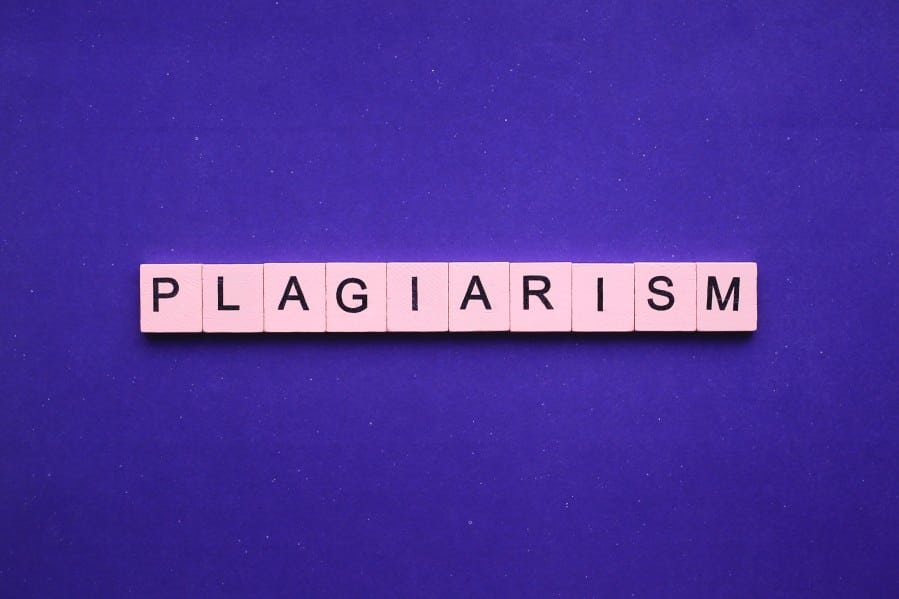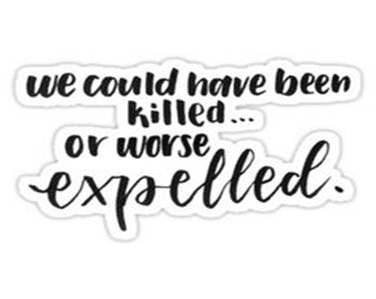Education
8 Ways Plagiarism can Wreak Havoc on Students’ Lives

How would you feel if your friend steals one of your quirky captions and use it to post his or her photo on Instagram? That would make you livid, and you have every right to be so! This scenario is what plagiarism is all about – but only a bigger and more horrifying picture. In a survey conducted on 60000 students, 46% of them have admitted to plagiarising material from online published content for their assignment help make it more interesting. What makes it even scarier is the fact that more than 4000 students face rustication or paper cancellation every year due to intentional or unintended plagiarism.
Using someone’s work – be it text, image or idea- without acknowledging the author amounts to Plagiarism. And with the availability of online plagiarism checkers, the chances of plagiarism detection have only increased.
So, what counts as plagiarism?
When you use the exact words written by someone else without citing the source and the author, you are plagiarizing. Even if it isn’t a published textbook, downloading content from online sources where the author’s name isn’t mentioned is considered cyber-plagiarism. And it isn’t always about copying material from published sources. If you share a group project and do not give the due credit to the member who has worked on a particular section, it will count as plagiarism.
That said, plagiarism always doesn’t have to a third-party thing. If you reuse content from an earlier assignment that you have written, that will amount to academic piracy as well.
Now, what happens when your act of plagiarising is detected? Read on to know how this academic crime can unleash hell for you and take you down forever.
[lwptoc]
-
Tarnished academic reputation

Image Source: Pinterest
Even if you copy material unintentionally, educational authorities won’t hear you out. Once detected, academic plagiarism can lead to suspension, or worse (as Hermione Granger would put it) get you expelled from school.
And even if you can duck the chances of being expelled, you are sure to slip down from the good books of your teachers. Imagine all your hard work coming down crashing on the floor for one mistake – copying an idea without mentioning the person at the root of it. You certainly would not want to be called out in your class for academic kleptomania. Moreover, it can get in your way when you want to get through your dream college.
-
Disqualification from courses
As you climb higher the ladder of academia, the penalizations of plagiarism become severe too. When in college, plagiarism can turn your life upside down if your dissertations and research papers carry more than 3% plagiarism. There are more rules for plagiarism and anti-theft that you can read anywhere on the internet.
Even if your research paper shows plagiarism more than the negligible 3% in the form of general phrases, the damage on your career can be irreparable. You could be terminated from continuing your research, which could lead to limited job offers in the future. If you have received any student awards, the university could revoke them as well.
-
Leads to legal repercussions
When you take content from a book or an article without citing it or quoting the information, you are infringing copyright laws. In that case, the author can sue you for using his or her work without asking for permission.
When you have a legal issue slapped up your name due to a “criminal offense”, it is a given that the incident would leave a permanent imprint on your life. This could disturb your employment credit and lead to job offers with a reduced pay scale.
-
The burden of monetary penalties
The penalization may not end with mere legal implications. Even if the case is slapped against a university, the institute will have to set up an investigation commission, which is a costly affair. Plus, the entire process would be long-winding. You will have to pay for the lawyer’s and investigator’s fees.
You may even have to pay heavy fines to the author from whose work you have stolen data. Again, if it is a journalist and you have taken data from a magazine column or the newspaper, you may have to spend a lot to offer the rightful owner financial restitution.
-
Misleading with false data
When you copy and use data in an academic research paper without understanding its relevance, the consequences of this simple act of piracy could lead to far more lethal results. Especially when it comes to medical and scientific papers, if you end up plagiarising wrong data from a report and do not mention the author, then you will be charged for presenting falsified data.
Moreover, academic piracy has the power to threaten the foundations of knowledge by refusing readers to access the proper sources. This, in turn, destroys the links to past knowledge and leads to an exponential chain of wrong information.
-
The habit of sloppy and irrelevant research
Most students take patches from various previous publications and end up creating collages of research works from clashing perspectives or different genres of a topic. This patchwork of ideas from different levels of analysis only leads to epistemological perspectives that are incoherent.
Moreover, what starts as an act due to a shortage of time becomes a habit that thwarts moral distinction. This bout of laziness and procrastination blurs the difference between real and fake knowledge, thus resulting in sloppy research.
-
Half-hearted knowledge
When you plagiarise from someone’s work instead of thinking out creative ideas by yourself, you feel you are taking a shortcut to success. However, you need to remember that you cannot cut corners when it comes to achieving long-lasting success.
For now, you may have received good grades after writing an academic paper on someone else’s idea. But what will you do when you have to do the work practically on the field? So, basically, when you plagiarise others’ ideas, you rob yourself the chance to learn and explore something new.
-
Impact on the author
When we talk about plagiarism, we often forget to consider how the act affects the lives of the one who has been wronged. If you are on that end, and if your work has been stolen and wrongfully claimed, the feeling of being eliminated symbolically can be devastating.
When somebody steals from your work, they steal your essence and breach your rights of personality. This can lead to shattered confidence, which can take a lot of time to build back. So, even if you do not do it consciously, think about your peer on the other end and refrain.
Since you are now aware of the fatal consequences of plagiarism and how it can stain your academic reputation and professional life, you need to be extra cautious about unintentional piracy as well. But how do you avoid the hefty charges? Here are some simple practices that you can adopt to prevent plagiarism in your assignments and papers.
You can cite the references in your paper in the correct referencing style. Make sure to use the correct spelling of the author’s name.
- If you want to use a short piece of text from an author’s work, quoting the sentence and mentioning the name within the text would do.
- You can also paraphrase an idea and use instead of blatant copying.
- When repurposing your own work, cite the data and images that you have used from your earlier published papers.
- Create a bibliography with an accurately referenced list that includes the authors’ names, date of publication, title, and the source at the end of the paper.
Seek authorization from the author before using content, images or any data in your paper.
Parting words
As you can see, academic plagiarism can have a domino effect on your academic life and even have lasting effects on your professional career. If you do not want to be in the bad books of your professors or bear monetary and legal repercussions, it would be best not to plagiarise data from other sources. Be honest and sincere. Even if you initially fail to meet deadlines and score good grades, you will be a benefit in the end.
Read more: Clear & Concise Guideline For Writing A Perfect Postgraduate Coursework

-

 Entertainment1 month ago
Entertainment1 month ago123Movies Alternatives: 13 Best Streaming Sites in 2026
-

 Entertainment2 months ago
Entertainment2 months ago13 Free FMovies Alternatives to Watch Movies Online in 2026
-

 Entertainment2 months ago
Entertainment2 months ago13 Flixtor Alternatives to Stream Free Movies [2026]
-

 Entertainment2 months ago
Entertainment2 months agoGoMovies is Down? Here are the 11 Best Alternatives





